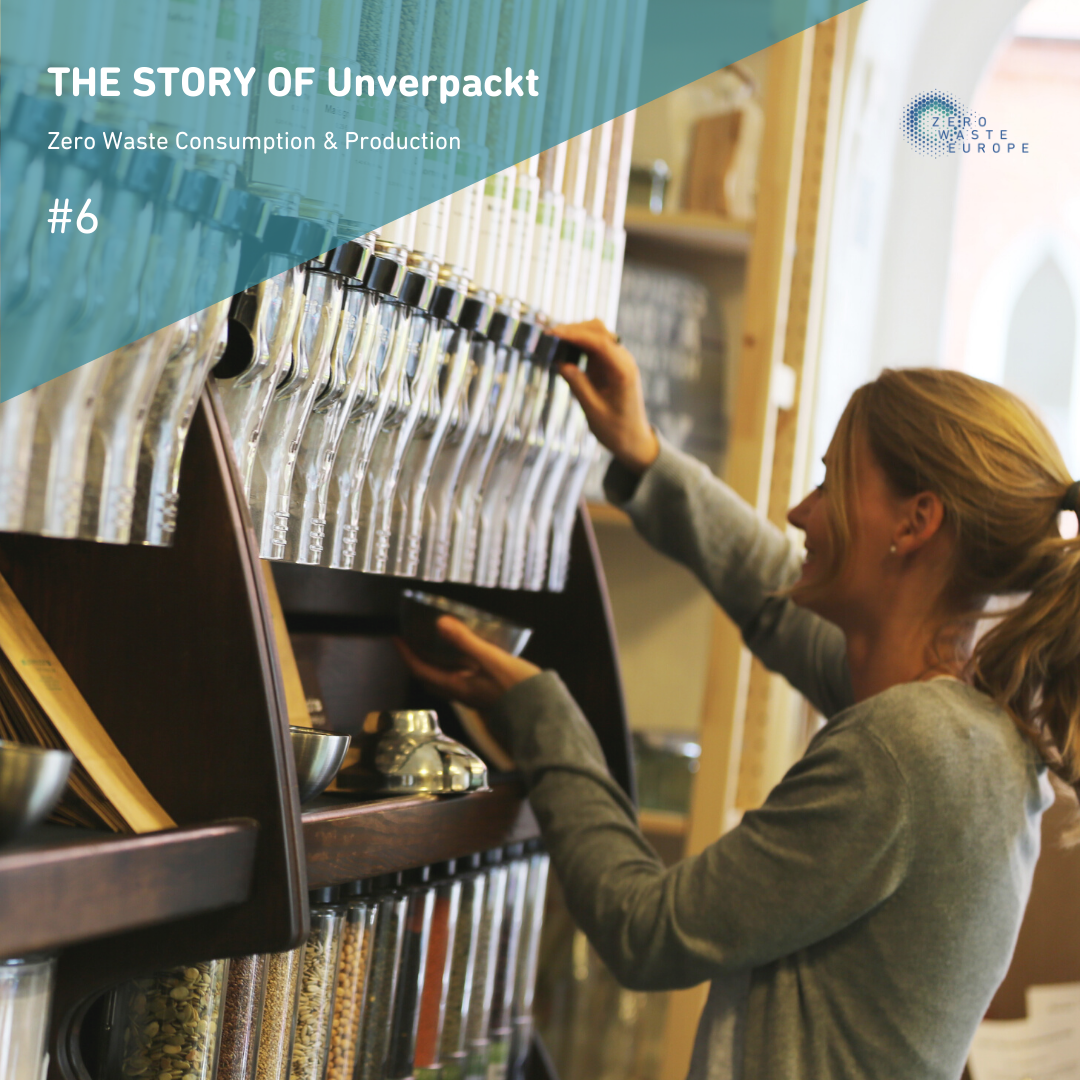The Story of Unverpackt

FOR IMMEDIATE RELEASE: Brussels, 06 December 2019
Zero Waste Europe releases the sixth chapter of its Consumption & Production Case Studies series aimed at promoting zero waste business models: The Story of Unverpackt, a pioneer of packaging-free movement in Germany, which have inspired the opening of more than 120 shops in the last 5 years.
The publication is part of a new series of case studies where Zero Waste Europe showcases change-making initiatives from cities, companies and individuals that are challenging and transforming current business models to move towards a more sustainable use of resources.
Packaging waste is a major component of waste totals worldwide, especially when it consists of single-use food packaging, a hallmark of throwaway culture. According to the latest figures, every German citizen generates 220.5kg of packaging waste per year, which are mostly single-use plastics. When it comes to the handle of plastic waste in Germany, the majority (85%) is incinerated, landfilled, shipped abroad, or is polluting the environment and harming public health (1). As an answer to this growing problem, in 2014 Marie Delaperrière, founder of Zero Waste Kiel, opened Germany’s first packaging-free store “Unverpackt” in Kiel.
How does it work? Unverpackt is a different kind of grocery store: all products are sold in bulk or through a deposit scheme. Further packaging material is saved along the supply chain by purchasing unprocessed and regional food as much as possible. This way, Unverpackt saves packaging both in the B2C sector (Business to Consumer) as well as along the entire supply chain, including B2B (Business to Business), while preventing food waste.
Since its opening, the shop has been pursuing a drastic reduction in packaging waste, the promotion of short delivery routes, and motivating customers to rethink their consumer behaviour in terms of sustainability. Unverpackt’s economic success shows the feasibility of the concept in the context of established food markets.
The study also highlights some of the challenges of zero waste business models, for example, the need to improve supply chains, increasing the use of deposit-return schemes, and the lack of a supportive and adapted legislation to enable such business to scale up.
Larissa Copello, Consumption and Production Campaigner at Zero Waste Europe calls out the legislators role in helping new business models like Unverpackt:
“Packaging free shops, such as Unverpackt, can become more competitive if Extended Producer Responsibility (EPR) fees are eco-modulated to make reuse more cost-competitive than single-use. A set of economic and legal incentives are needed to support packaging-free shops across Europe and beyond.”
ENDS
Press Contacts:
Larissa Copello, Consumption and Production Campaigner, Zero Waste Europe, [email protected], +32 (0) 2 73 62 091
NOTE: